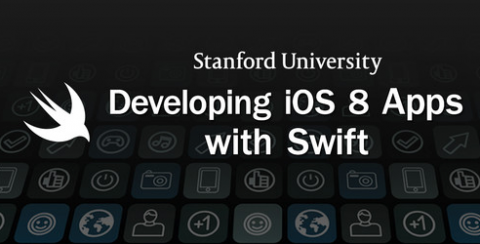Psychology has made many advances in the past few decades, notably in cognitive science, neuroscience, and behavioral psychology. A major new focus area in psychology that draws upon these disciplines started in 1998 when Martin Seligman, then president of the American Psychological Association, called on his colleagues to start studying happiness, rather than illnesses, the traditional focus of psychology. The result was an explosion of research, academic departments, and popular books and the creation of a new field of ‘positive psychology’. It is this field that Dr. Raj Raghunathan studies, and he passionately teaches his students about the science of happiness at the McCombs School of Business at the University of Texas at Austin. He also writes a blog column for Psychology Today. This summer, Raghunathan, who is currently visiting professor at the Indian School of Business, will be offering his MOOC, A Life of Happiness and Fulfillment, to the public on the Coursera platform.
It may be surprising that a course on happiness is being offered in business school, the supposed factory of budding ruthless capitalists. However, times are changing, and enlightened business schools can be a good setting to think about the social and economic means and ends in our current society. In fact, it was a business context which steered Raghunathan towards studying happiness in the first place:
When I visited India in 2007 I met up with my classmates from 15 years ago and I discovered two things. One, there’s very little correlation between academic success and career success. The people who were at the top weren’t necessarily the ones who were doing well in their careers, which is, of course, quite well known in the research. But second, there was an even smaller correlation between career success and life success. The guys who were really successful weren’t able to maintain a conversation with me and weren’t able to be present, they were constantly distracted. They had bags under their eyes, had put on weight, and it was clear that they weren’t very happy.
Fast forward and you find Raghunathan, after obtaining a PhD at New York University, a tenured faculty member at the McCombs School of Business, a top-20 U.S. business school, teaching students about happiness. There are only a few tenure-track professors in the country teaching a whole course on happiness in U.S. business schools, so Raghunathan has been a trailblazer. It is also a great testament to the Indian School of Business, a premier business program in a rapidly industrializing country, that this subject was chosen to be their first MOOC offering in its new partnership with Coursera.
Happiness Science vs. the Wisdom Literature
As people have been concerned with happiness from before the dawn of civilization, we’ve had many sources to turn to with regard to happiness: intuition, tradition, reason, but mostly, religious and spiritual wisdom. Now science has recently added a new dimension to our understanding. We can see, for example, which parts of the brain are active during different emotional states, and understand better the role of neurotransmitters, such as serotonin and dopamine. One very convenient, practical result for psychology is that these changes in brain states are largely correlated with self-reported answers of how happy people feel—so happiness is fairly straightforward to measure (you can take a 20-minute happiness test here if you are interested). So what have we found out about happiness? It turns out that many of the findings support the religious/spiritual viewpoints. For example:
- Money cannot buy you happiness, unless you’re poor. Robust surveys among a broad array of people across countries indicate that beyond a certain threshold, people do not report being happier. Specifically, in the U.S., Daniel Kahneman and Angus Deaton found through a robust survey of 450,000 Americans that once people reach an income threshold of around $75,000 per year, they tend not to be any happier.
- Caring for others is one of the most important things you can do. Another specific finding that the science brings us is the value of altruism. Studies have shown, for example, that when given a small sum of money, the people who give it to others, rather than spending it on themselves, actually report being happier. Raghunathan also adds that being altruistic doesn’t have to mean being boring, and he has his classes experiment with fun ways to be altruistic.
These findings are similar to the teachings of many wisdom traditions, but they also give more specifics and provide insight into the underlying mechanisms involved. These can result in practical suggestions and tips for managing ourselves better through setting up helpful habits, mindsets, and triggers. But a puzzling question has emerged: why do we often not pursue what we supposedly want?
The Fundamental Happiness Paradox
There is a phenomenon that most of us will probably recognize, which Raghunathan calls the Fundamental Happiness Paradox: we want to achieve happiness, but often pursue things that clearly don’t lead to it. Raghunathan elaborates:
On the one hand people think happiness is very, very important to them, so therefore you would think that they ought to be making decisions are consistent with that, but when we observe their decisions, a good 50–60 percent of the time they are sacrificing happiness for the sake of other things as they go about their daily lives, in little small ways, and even in big ways.
The problem is that we pursue happiness through various means, such as money, status, esteem, or health, but we sometimes overly fixate on these means rather than the ends. As a society we do recognize this on some level—think of all the movies and television shows that end with the protagonists realizing what’s really important to them. Yet, it tells you something if we keep having to remind ourselves about this constantly and repetitively in our cultural stories. Psychology has already explained why we eat the last few Cheetos in a bowl, and in the future may help explain this mystery of why we don’t pursue our happiness as directly as we could.
Happiness Comes in Threes
The Three Pillars of Happiness
So what should we do to pursue happiness? Raghunathan groups the research findings into three main pillars:
- Pursue meaningful work – Try to spend your energy in ways that are meaningful to you, at work or at home. Mihaly Csikszentmihaly has popularized the notion of “flow”, those times when we are doing something that so fully absorbs our attention that we lose track of time (I guess I must be in “flow” whenever I’m watching Grey’s Anatomy…). From a career standpoint, Raghunathan recommends making passion a criterion for choosing your work: “you spend so much time at work you might as well make that a meaningful thing that you are doing in your life”. Perhaps this is not feasible for everyone at every point in their career, but it is surely a sound guiding principle, as it has been echoed by Steve Jobs, Thoreau, Gloria Estefan, and others.
- Maintain close relationships – Most people, upon reflection, consider the relationships they’ve developed with family, friends, colleagues, and others to be the most meaningful part of their lives. However, we often don’t place a high priority on building or maintaining these. Relationships are like investments that require time and attention, and they are bonds that represent commitments and expectations, yet we are quick to downplay or dismiss them. Social science offers tips and practical suggestions for improving relationships, such as: giving your brain a cooling off period when you are angry, seeing forgiveness as an integral part of freeing up your own mind, and cultivating face-to-face time in our mobile connected world.
- Have a spiritual attitude – A strong sense of spirituality, whether religiously or otherwise sourced, has been associated with reduced stress levels, and we know we can’t be happy when we are over-stressed. There is also growing evidence that meditation practices have beneficial effects. In fact, in the MOOC, Raghunathan will have a couple of experts leading participants through the steps of the meditation process.
Do these three pillars reveal any shocking surprises? No, and thankfully not–otherwise it would be a declaration that previous generations had missed the boat on understanding happiness (though Raghunathan points out that few spiritual traditions emphasize the first pillar –pursuing meaningful work). Rather, the contribution of science is in the details. We start to see what cognitive drivers and barriers to happiness are. From this understanding comes evidence-based techniques and frameworks we can use to help ourselves construct happier lives.
There is some serious research on happiness, and it has the potential to directly impact our lives. Whether you are in business school or high school, on the farm or in city hall, in a cubicle or at a retirement home—why wouldn’t you want to know more about what makes us happy? And you have the opportunity to be guided by Dr. Raghunathan by signing up for his free MOOC: A Life of Happiness and Fulfillment, which starts this summer.
Charlie Chung is passionate about the intersection of learning and technology. He is Chief Editor at Class Central, a MOOC search engine and reviews site. Special thanks to Raj Raghunathan, who agreed to be interviewed for this article, the Indian School of Business, and Coursera.





